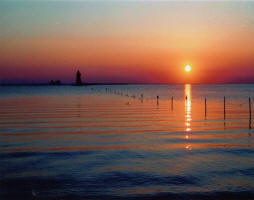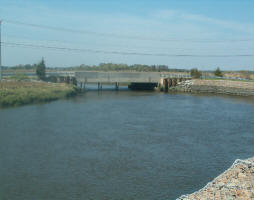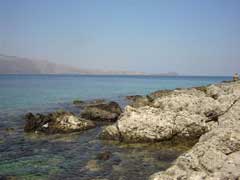 Network in solid waste and water treatment between Europe and Mediterranean countries
Network in solid waste and water treatment between Europe and Mediterranean countries
Population growth among Europe's North African neighbours, Morocco and Tunisia in particular, is putting increasing pressure on the demand for clean water. As supplies slowly dwindle, there is a growing need for efficient technologies to improve water quality and treatment in a bid to cut down on waste water.
Supporting initiatives in Morocco and Tunisia, two Mediterranean Partner Countries (MPCs) suffering from scarce water resources, the EU FP7-funded project 'Network in solid waste and water treatment between Europe and Mediterranean countries' (SOWAEUMED) set out to help these two countries improve their water quality and treatment.
The water in Morocco and Tunisia is not only scarce but is also under threat from pollution. The Sowaeumed project is working with research groups in Moroccan and Tunisian laboratories to develop new systems based on conventional, advanced, and nanotechnologies. These will address both the demands on water as populations in these countries increase and the need for new treatment regimes which will make the valuable resources cleaner and safer.
"A segment of our research activities is directed in the area of nano-environment by focusing on the use of nano-particles and nano-composite materials in environmental clean-up, including water purification and treatment of waste water," says project coordinator Prof. Manuel Valiente.
--
Coordinator
UNIVERSITAT AUTONOMA DE BARCELONAESPAÑA Administrative contact: Núria CLAVER (Ms.)
Campus UAB -BELLATERRA-, 08193, CERDANYOLA DEL VALLES, ESPAÑA
Tel: +34-935813209
Fax: +34-935812023
Email: Contact
Website See on map
Participants
RUDER BOSKOVIC INSTITUTE
Hrvatska
KUNGLIGA TEKNISKA HOEGSKOLAN
SVERIGE
UNIVERSITE CADI AYYAD
MOROCCO
| Project number | 245843 | ||
|---|---|---|---|
| Subject(s) | ANALYSIS AND TESTS , CHARACTERISTICAL PARAMETERS OF WATERS AND SLUDGES , DRINKING WATER , DRINKING WATER AND SANITATION : COMMON PROCESSES OF PURIFICATION AND TREATMENT , ENERGY , HEALTH - HYGIENE - PATHOGENIC MICROORGANISM , HYDRAULICS - HYDROLOGY , INDUSTRY , INFRASTRUCTURES , MEASUREMENTS AND INSTRUMENTATION , METHTODOLOGY - STATISTICS - DECISION AID , NATURAL MEDIUM , POLICY-WATER POLICY AND WATER MANAGEMENT , PREVENTION AND NUISANCES POLLUTION , SANITATION -STRICT PURIFICATION PROCESSES , SLUDGES , WATER QUALITY | ||
| Acronym | SOWAEUMED | ||
| Geographical coverage | Spain, Tunisia, Sweden, Morocco, Croatia | ||
| Budget (in €) | 988998 | ||
| Programme | FP7-REGPOT | ||
| Web site | http://cordis.europa.eu/projects/rcn/94376_en.html | ||
| Objectives | The project foresees the synergic work of participants of various scientific profiles by improvement of scientific relationships, exchange of know-how and experience between the participating centers, including training in MS of Ph.D. students and/or post-doctoral researchers, to upgrade S&T research capacities of centers in MED countries dealing with waste treatment technologies both conventional, advanced and nanoscience based. |
||
| Results | "Nanoparticles are very suitable for water treatment due to their high reactivity and a very high surface-to- volume ratio; they can be up to 1000 times more efficient than conventional ion-exchange resins for the removal of dissolved species from water streams." Project details
|
||
| Period | [01/12/2009 - 30/11/2012] | ||
 you are not logged in
you are not logged in





